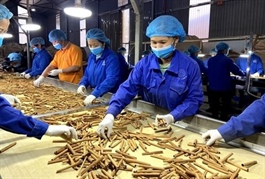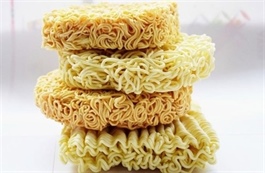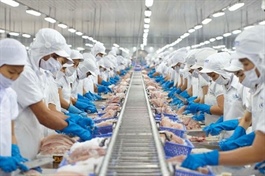Vietnam's instant noodles exempt from heightened EU food safety controls
Vietnam's instant noodles exempt from heightened EU food safety controls
Vietnamese instant noodles will be exempted from the EU's heightened food safety control when exported to the EU starting on July 2, 2024.

On June 11, the European Commission adopted Implementing Regulation (EU) 2024/1662. This regulation amends Implementing Regulation (EU) 2019/1793, which concerns the temporary increase in official controls and emergency measures for the entry of certain goods into the EU from specific third countries.
Accordingly, instant noodles containing spices, seasonings, or sauces from Vietnam have been subjected to an increased level of official controls due to the risk of contamination by ethylene oxide since December 2021.
The official controls carried out on that commodity by the Member States indicate an overall satisfactory degree of compliance with the relevant requirements provided for in EU legislation. Therefore, an increased level of official controls is no longer justified for that commodity, and its entry in Annex I to Implementing Regulation (EU) 2019/1793 should be deleted.
Nevertheless, the inspection frequency at border gates for Vietnamese instant noodles remains at 20 per cent.
The positive news is a testament to the unwavering efforts made by the Ministry of Industry and Trade, enterprises, and other relevant authorities to improve the safety and quality of instant noodle exports to the EU.
Additionally, the EU has modified the inspection guidelines for other farm produce from Vietnam. Specifically, the entry on peppers of the genus Capsicum (other than sweet) from Vietnam in Annex I to Implementing Regulation (EU) 2019/1793 should be deleted and transferred to Annex II to that Implementing Regulation, with a frequency of identity and physical checks set at 50 per cent of consignments entering the union.
The frequency of inspections for dragon fruit at the border has been raised from 20 per cent to 30 per cent. Okra remains subject to a 50 per cent inspection frequency with food safety certificates and test results for residual pesticide residues in the product. Meanwhile, the inspection frequency for durian remains at 10 per cent.




























